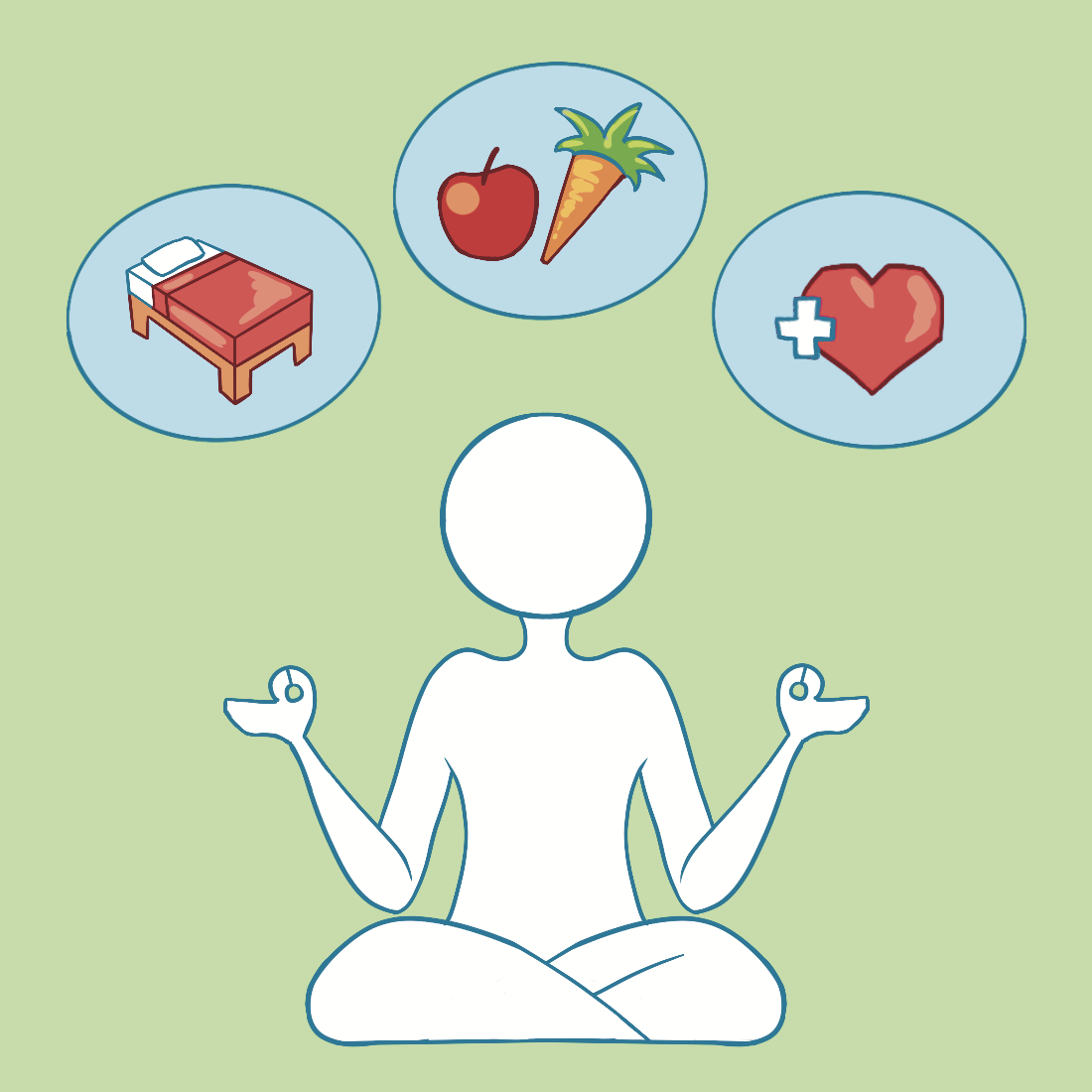The University of North Alabama’s finals season begins May 3 and completes on May 8. Many finals take place or can be completed in late April, however, and stress for students sets in as the semester comes to a close.
Jacquelyn Allen, director of Healthy UNA, shares some tips for students who want to prioritize their mental and physical health for the upcoming finals season.
Nutrition
There are plenty of ways college students can eat healthy while on a small budget. Affordable supermarkets like Aldi and Walmart are great ways to get key groceries like vegetables and proteins with little money. Good, nourishing food does not need to come from a high-end supermarket.
Skipping on meals is something Allen does not recommend. No matter how little time you have, a full meal can greatly improve mental performance.
Meal planning is a habit she greatly encourages college students form while they are young, as developing the habit as a full-fledged adult can be difficult. It involves preparing meals or dishes ahead of schedule, often in bulk. The usual time span is week-by-week. In the long run, this can save time and money.
“Grocery bills have gone up, but so have restaurant and fast food bills,” Allen said. “If you meal prep and organize for the week, you can stretch [home-cooked] meals further than a fast food meal.”
She recommends basics such as pasta, vegetables and proteins for easy meal prep. While it can seem time consuming, prepping an assortment of food on one day can save time on busy days.
A recent Wellness Wednesday demonstration showed students how to make three separate meals from an assortment of vegetables, from being served atop pasta to being incorporated into a pizza. The demonstration is available to view on Healthy UNA’s YouTube channel.
Sleep
Adults ages 18 to 64 years old are recommended to get seven to nine hours of sleep each night. While studying and cramming slowly take priority for students, sleep is usually the first thing to go. Teachers are not exempt from losing sleep, either.
“[Sleep] is one of the areas we compromise on the most,” Allen said. “We’re really doing our bodies a disservice.”
Quality, restorative sleep is essential for good performance, both mentally and physically. Healthy sleep habits can be hard for people to form, but they have long-term effects on the body.
Physical activity
There are plenty of ways students can remain physically active with a short amount of time allotted. Allen says most exercises can be done at a desk, in bed or simply on a dorm room floor.
When most think of exercise, their minds go to gyms with complicated equipment and personal trainers. In reality, exercise can be as simple as a series of stretches in a chair or a quick set of jumping jacks.
The CDC recommends people moderately exercise at least 150 minutes per week, and 75 minutes of vigorous exercise. While the amount of time seems daunting, they can be split into small increments. 150 minutes of weekly exercise can be shrunk to 30 minutes of daily exercise over five days.
From a student perspective, breaks are extremely important. According to Allen, exercising during these breaks can help clear your mind.
“There are things you can do in your dorm room or, if you’re on campus, we have a beautiful campus to walk,” she said. “If you’re sitting at your desk, you need to make sure you’re not just sitting for long periods of time.”
There are also easy exercises people can do from a desk chair to help with poor posture pain. Things like neck tilts and shoulder shrugs are small but mighty options. Healthy UNA has many resources on their website for small workouts to do.
Deep breathing and meditation
One of the best ways Allen has found to control anxiety is through deep breathing practices. Deep breathing refers to breathing from the abdomen rather than the chest. Chest breathing is more shallow in comparison.
There are many meditation apps available to use for free, and some have additional in-app purchases. Allen recommends Calm and Headspace. For additional free meditation techniques, Youtube is a wonderful source with hours and hours of content.
Yoga also ties into both deep breathing and meditation. It also adds stretching and relaxation. UNA Rec has group yoga classes available for free.
Mental health
Mental health is an extremely high priority during the finals season. With grade-determining tests and semester-long projects finishing, students fall under extreme stress in the last few weeks of any semester. This stress can snowball into anxiety, depression and more.
Time management can help improve stress from studying. Allen advises against cramming, and instead recommends a scheduled approach to studying.
For more information on healthy habits and wellness, visit www.una.edu/wellness. Questions can also be directed to wellness@una.edu.








